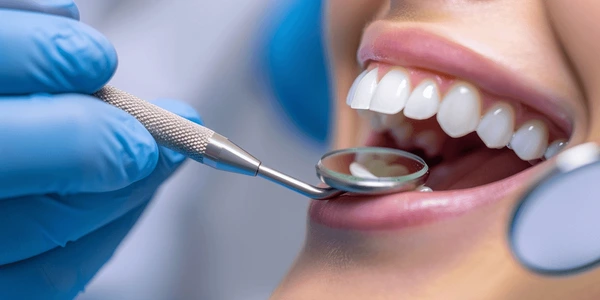Dental Health: Tips for a Healthier Smile
Dental health is an essential aspect of overall well-being. A healthy mouth is not only vital for eating, speaking, and smiling confidently, but it also has a significant impact on systemic health. Poor oral hygiene can lead to dental issues such as cavities, gum disease, and even contribute to serious health conditions like heart disease, diabetes, and respiratory infections.
Despite its importance, dental health is often neglected due to a lack of awareness or misconceptions. In this article, we will explore the basics of oral hygiene, the connection between dental and overall health, preventive care tips, and common dental problems. We’ll also answer five frequently asked questions to help you better understand how to maintain a healthy smile for life.
Why Dental Health Matters
1. Oral Health Affects Overall Health
The mouth is a gateway to the body. Harmful bacteria in the mouth can enter the bloodstream, potentially affecting the heart, lungs, and other organs. Studies have shown links between poor oral hygiene and systemic conditions such as:
Cardiovascular disease: Inflammation from gum disease may contribute to clogged arteries.
Diabetes: Gum disease can make it harder to control blood sugar.
Respiratory infections: Inhaling bacteria from the mouth can lead to lung infections.
Pregnancy complications: Poor oral health has been associated with premature birth and low birth weight.

2. Dental Problems Can Be Painful and Expensive
Ignoring dental care can lead to costly treatments. Cavities, root canals, and gum surgeries are not only painful but also expensive. Regular check-ups and preventive care are far more affordable and manageable.
Components of Good Dental Hygiene
Maintaining dental health involves consistent and proper oral care habits. Here’s what an ideal dental routine looks like:
1. Brushing Your Teeth
Brush at least twice a day, ideally after meals.
Use a fluoride toothpaste and a soft-bristled toothbrush.
Brush for a full two minutes, making sure to clean all surfaces of the teeth.
2. Flossing Daily
Flossing removes plaque and food particles between teeth where a toothbrush can’t reach. It prevents:
Cavities between teeth
Gum inflammation
Bad breath
3. Using Mouthwash
An antiseptic mouthwash can help kill bacteria and freshen your breath. Fluoride mouthwashes strengthen tooth enamel and help prevent decay.
4. Diet and Nutrition
What you eat directly affects your dental health:
Avoid sugary snacks and drinks – they promote tooth decay.
Eat foods rich in calcium and phosphorus to strengthen teeth.
Drink plenty of water to rinse away food particles and bacteria.
5. Regular Dental Visits
Visit your dentist at least twice a year for cleanings and check-ups.
Early detection of cavities or gum problems can prevent major procedures.
Common Dental Problems
1. Tooth Decay (Cavities)
Cavities are caused by plaque – a sticky film of bacteria that produces acid and erodes tooth enamel. Symptoms may include sensitivity, pain, or visible holes in the teeth.
Prevention: Brush, floss, reduce sugar, and visit your dentist regularly.
2. Gum Disease (Gingivitis and Periodontitis)
Gum disease begins with gingivitis – red, swollen gums that bleed easily. If untreated, it can progress to periodontitis, where gums pull away from teeth, leading to bone and tooth loss.
Prevention: Good oral hygiene, regular dental visits, and avoiding tobacco.
3. Bad Breath (Halitosis)
Often caused by poor oral hygiene, dry mouth, infections, or certain foods. Chronic bad breath may indicate underlying dental problems.
Solution: Maintain oral hygiene, stay hydrated, and address any dental infections.
4. Tooth Sensitivity
Sensitivity to hot, cold, or sweet foods and drinks can result from worn enamel, exposed roots, or cavities.
Treatment: Desensitizing toothpaste, fluoride treatments, and dental interventions as needed.
5. Oral Cancer
Early signs include sores that don’t heal, lumps, or white/red patches in the mouth. Early detection is crucial for successful treatment.
Prevention: Avoid tobacco and alcohol, and get regular oral cancer screenings.

Dental Health Across Different Life Stages
1. Children
Begin dental care as soon as the first tooth appears.
Encourage brushing and flossing habits early.
Schedule the first dental visit by age one.
2. Teens
Monitor braces or aligner hygiene if applicable.
Watch for signs of wisdom teeth issues.
Limit sugary drinks and snacks common in teen diets.
3. Adults
Maintain consistent oral hygiene practices.
Be aware of early signs of gum disease.
Manage stress to prevent teeth grinding (bruxism).
4. Seniors
Be vigilant about dry mouth, often caused by medications.
Use dentures or implants properly.
Maintain regular dental appointments even if natural teeth are gone.
Tips for a Healthy Smile
Replace Your Toothbrush every 3–4 months or sooner if bristles are frayed.
Brush Your Tongue to remove bacteria and prevent bad breath.
Avoid Tobacco Products, which increase your risk of gum disease and oral cancer.
Drink Water After Meals to rinse your mouth.
Wear a Mouthguard if you grind your teeth or play contact sports.
The Role of Dentists and Dental Hygienists
Dentists diagnose and treat dental issues, perform procedures like fillings, crowns, and extractions, and screen for diseases.
Dental hygienists focus on cleaning teeth, removing plaque/tartar, and educating patients on proper oral care.
Both are essential to maintaining your oral health. Never underestimate the importance of professional care, even if your teeth seem healthy.
The Connection Between Mental Health and Oral Hygiene
Stress, depression, and anxiety can negatively affect dental habits. People may neglect brushing or overeat sugary foods during periods of emotional distress. Some medications also reduce saliva, causing dry mouth and increasing the risk of cavities.
Solution: Recognize the link between emotional well-being and oral care. Seek help for mental health issues and inform your dentist about any medications or concerns.
The Future of Dental Health
Advancements in dental technology are revolutionizing oral care:
Digital X-rays and 3D imaging for more accurate diagnoses.
Laser dentistry for less painful and faster treatments.
Teledentistry for remote consultations.
Biomaterials and regenerative medicine to repair tooth enamel or grow new tissue.
Staying informed about new developments can help you take advantage of more effective and comfortable dental care options.
Frequently Asked Questions (FAQs)
1. How often should I brush and floss my teeth?
You should brush at least twice a day with fluoride toothpaste and floss once daily. Brushing removes surface plaque and food particles, while flossing cleans between the teeth and under the gumline.
2. What’s the best age for a child’s first dental visit?
The American Dental Association recommends that a child should see a dentist by their first birthday or within six months of the first tooth erupting. Early visits help identify potential issues and establish good habits.
3. Can poor oral health cause other health problems?
Yes. Research links poor oral health to several systemic conditions like heart disease, stroke, diabetes, and even Alzheimer’s disease. Gum disease is particularly associated with inflammation that can affect other parts of the body.
4. Are electric toothbrushes better than manual ones?
Both can be effective if used properly, but electric toothbrushes often remove more plaque and are easier for people with limited mobility. Many models include timers to ensure you brush for a full two minutes.
5. How can I whiten my teeth safely?
You can use whitening toothpaste, over-the-counter kits, or seek professional whitening from a dentist. Avoid excessive use of harsh bleaching agents, which can erode enamel. Always consult a dentist before starting any whitening treatment.
Conclusion
Dental health is more than just a pretty smile—it’s a vital part of your overall wellness. With consistent care, routine check-ups, and good daily habits, you can prevent most dental problems and enjoy a lifetime of healthy teeth and gums.
Whether you’re a parent teaching your child how to brush or an adult trying to reverse bad habits, it’s never too late to take control of your oral health. A little effort goes a long way toward protecting one of your most important assets—your smile.

